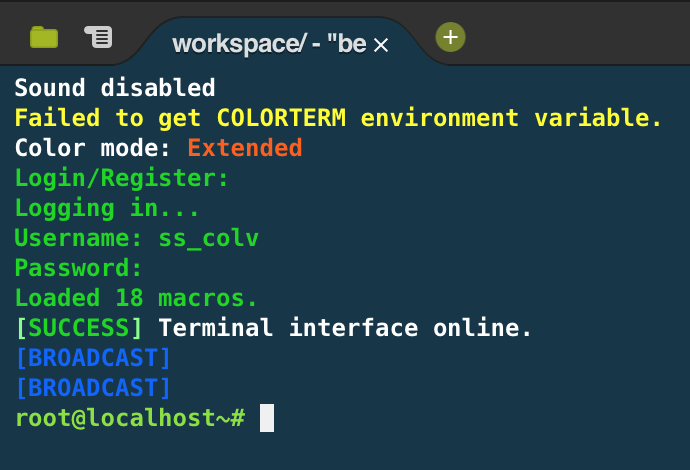You need to produce output that is non-deterministic.
In this case, this will be defined to mean that the output will not always be the same result.
Rules:
A pseudo-random number generator that always has the same seed does not count.
You can rely on the program being run at a different (unknown) time each execution.
Your code's process id (if it's not fixed by the interpreter) can be assumed to be non-deterministic.
You may rely on web-based randomness.
Your code may not take non-empty input. Related meta post.
The program is not required to halt, but the output must be displayed.
Leaderboard
function answersUrl(a){return"https://api.stackexchange.com/2.2/questions/"+QUESTION_ID+"/answers?page="+a+"&pagesize=100&order=desc&sort=creation&site=codegolf&filter="+ANSWER_FILTER}function commentUrl(a,b){return"https://api.stackexchange.com/2.2/answers/"+b.join(";")+"/comments?page="+a+"&pagesize=100&order=desc&sort=creation&site=codegolf&filter="+COMMENT_FILTER}function getAnswers(){jQuery.ajax({url:answersUrl(answer_page++),method:"get",dataType:"jsonp",crossDomain:!0,success:function(a){answers.push.apply(answers,a.items),answers_hash=[],answer_ids=[],a.items.forEach(function(a){a.comments=[];var b=+a.share_link.match(/\d+/);answer_ids.push(b),answers_hash[b]=a}),a.has_more||(more_answers=!1),comment_page=1,getComments()}})}function getComments(){jQuery.ajax({url:commentUrl(comment_page++,answer_ids),method:"get",dataType:"jsonp",crossDomain:!0,success:function(a){a.items.forEach(function(a){a.owner.user_id===OVERRIDE_USER&&answers_hash[a.post_id].comments.push(a)}),a.has_more?getComments():more_answers?getAnswers():process()}})}function getAuthorName(a){return a.owner.display_name}function process(){var a=[];answers.forEach(function(b){var c=b.body;b.comments.forEach(function(a){OVERRIDE_REG.test(a.body)&&(c="<h1>"+a.body.replace(OVERRIDE_REG,"")+"</h1>")});var d=c.match(SCORE_REG);d?a.push({user:getAuthorName(b),size:+d[2],language:d[1],link:b.share_link}):console.log(c)}),a.sort(function(a,b){var c=a.size,d=b.size;return c-d});var b={},c=1,d=null,e=1;a.forEach(function(a){a.size!=d&&(e=c),d=a.size,++c;var f=jQuery("#answer-template").html();f=f.replace("{{PLACE}}",e+".").replace("{{NAME}}",a.user).replace("{{LANGUAGE}}",a.language).replace("{{SIZE}}",a.size).replace("{{LINK}}",a.link),f=jQuery(f),jQuery("#answers").append(f);var g=a.language;g=jQuery("<a>"+g+"</a>").text(),b[g]=b[g]||{lang:a.language,lang_raw:g,user:a.user,size:a.size,link:a.link}});var f=[];for(var g in b)b.hasOwnProperty(g)&&f.push(b[g]);f.sort(function(a,b){return a.lang_raw.toLowerCase()>b.lang_raw.toLowerCase()?1:a.lang_raw.toLowerCase()<b.lang_raw.toLowerCase()?-1:0});for(var h=0;h<f.length;++h){var i=jQuery("#language-template").html(),g=f[h];i=i.replace("{{LANGUAGE}}",g.lang).replace("{{NAME}}",g.user).replace("{{SIZE}}",g.size).replace("{{LINK}}",g.link),i=jQuery(i),jQuery("#languages").append(i)}}var QUESTION_ID=101638,ANSWER_FILTER="!t)IWYnsLAZle2tQ3KqrVveCRJfxcRLe",COMMENT_FILTER="!)Q2B_A2kjfAiU78X(md6BoYk",OVERRIDE_USER=34718,answers=[],answers_hash,answer_ids,answer_page=1,more_answers=!0,comment_page;getAnswers();var SCORE_REG=/<h\d>\s*([^\n,<]*(?:<(?:[^\n>]*>[^\n<]*<\/[^\n>]*>)[^\n,<]*)*),.*?(\d+)(?=[^\n\d<>]*(?:<(?:s>[^\n<>]*<\/s>|[^\n<>]+>)[^\n\d<>]*)*<\/h\d>)/,OVERRIDE_REG=/^Override\s*header:\s*/i;body{text-align:left!important}#answer-list,#language-list{padding:10px;width:400px;float:left}table thead{font-weight:800}table td{padding:5px}<script src="https://ajax.googleapis.com/ajax/libs/jquery/2.1.1/jquery.min.js"></script><link rel="stylesheet" type="text/css" href="//cdn.sstatic.net/codegolf/all.css?v=83c949450c8b"><div id="language-list"> <h2>Shortest Solution by Language</h2> <table class="language-list"> <thead> <tr><td>Language</td><td>User</td><td>Score</td></tr></thead> <tbody id="languages"> </tbody> </table></div><div id="answer-list"> <h2>Leaderboard</h2> <table class="answer-list"> <thead> <tr><td></td><td>Author</td><td>Language</td><td>Size</td></tr></thead> <tbody id="answers"> </tbody> </table></div><table style="display: none"> <tbody id="answer-template"> <tr><td>{{PLACE}}</td><td>{{NAME}}</td><td>{{LANGUAGE}}</td><td>{{SIZE}}</td><td><a href="{{LINK}}">Link</a></td></tr></tbody></table><table style="display: none"> <tbody id="language-template"> <tr><td>{{LANGUAGE}}</td><td>{{NAME}}</td><td>{{SIZE}}</td><td><a href="{{LINK}}">Link</a></td></tr></tbody></table>

